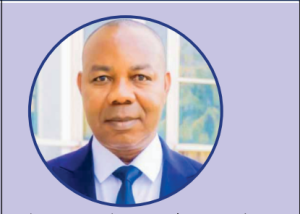
Partnering for Progress in Nigeria’s Transport Sector
- Lead StoryMaritimePipelineRailwayRoad
- July 21, 2025
- No Comment
- 209
As Nigeria’s transportation landscape evolves, Transportation Agenda remains committed to fostering dialogue, innovation, and collaboration to drive meaningful change. This edition highlights both the challenges and opportunities within our sector, with a focus on solutions that align with national development goals.
The sobering report on inland waterways safety “Silent Waters, Violent Toll” underscores the urgent need for collective action. While recent efforts by the Federal Government and agencies like NIWA and LASWA are commendable, the recurring incidents of boat mishaps reveal gaps that require stakeholder synergy. Strengthening enforcement, promoting public awareness on safety protocols, and investing in modern vessel technology are critical steps we must champion together.
In our exclusive interview with Fola Tinubu of Primero Transport Services, we gain insights into the resilience of private sector players navigating economic and infrastructural constraints. His experiences mirror the broader realities of urban mobility, where public-private partnerships can bridge gaps, provided there is policy stability and infrastructural support. The Lagos BRT system stands as a pointer to what is possible when government and operators work hand-in-hand.

The proposed 5% petroleum user’s charge for road maintenance presents another opportunity for stakeholder engagement. While the intent to fund critical road infrastructure is laudable, transparency in implementation will be key to building public trust. Lessons from past initiatives should guide its execution to ensure tangible outcomes for Nigeria’s road network.
At Transportation Agenda, we believe in the power of collaboration to transform challenges into milestones. The recently concluded Regional Ferry Safety Conference 2025 organised by LASWA exemplifies the progress possible when stakeholders unite under a shared vision. Moving forward, we urge sustained dialogue, data-driven policies, and inclusive planning to create a transport system that is safe, efficient, and sustainable.
Together, we can navigate the road ahead.
Prince Dr. Segun Obayendo
Publisher



